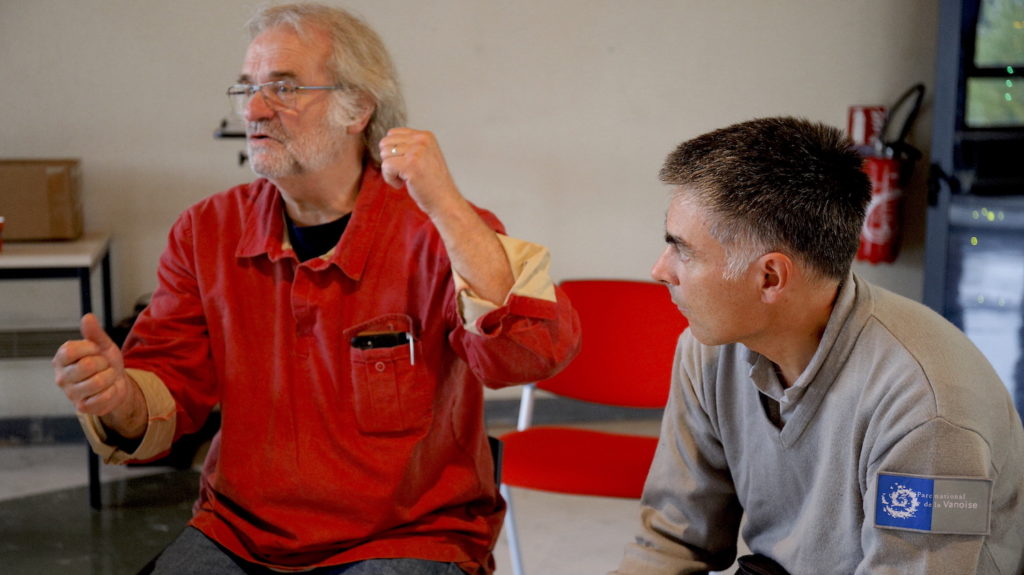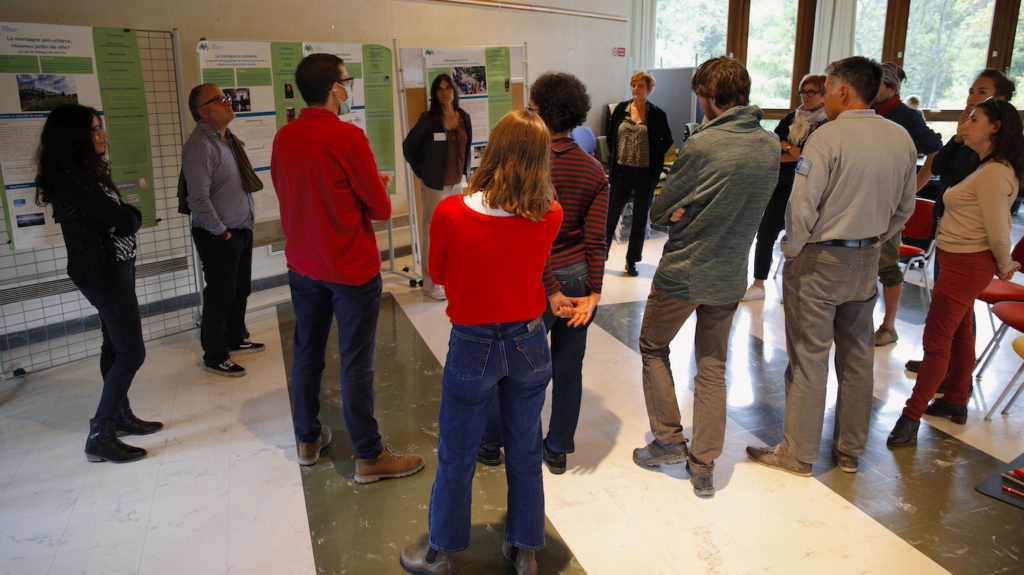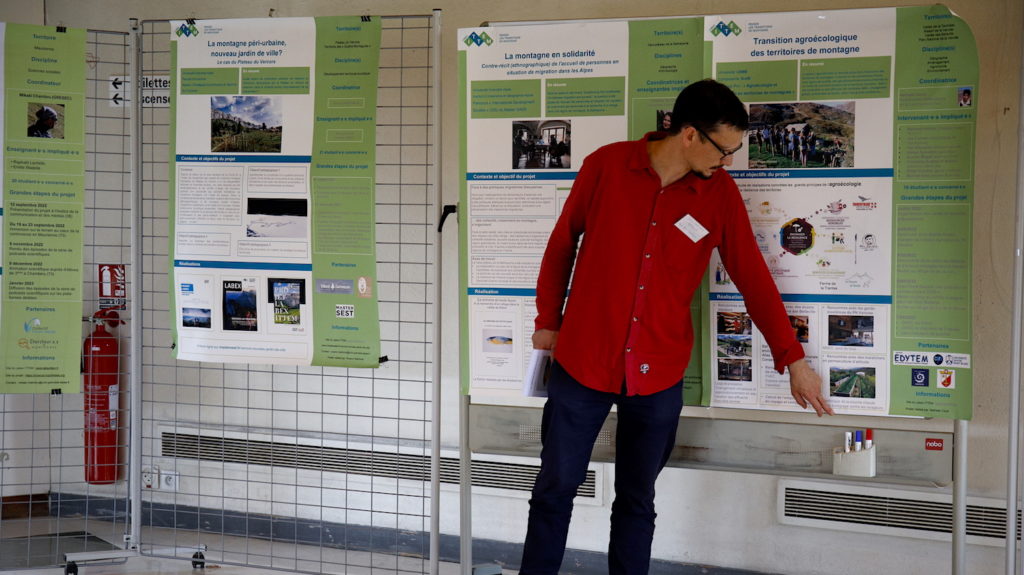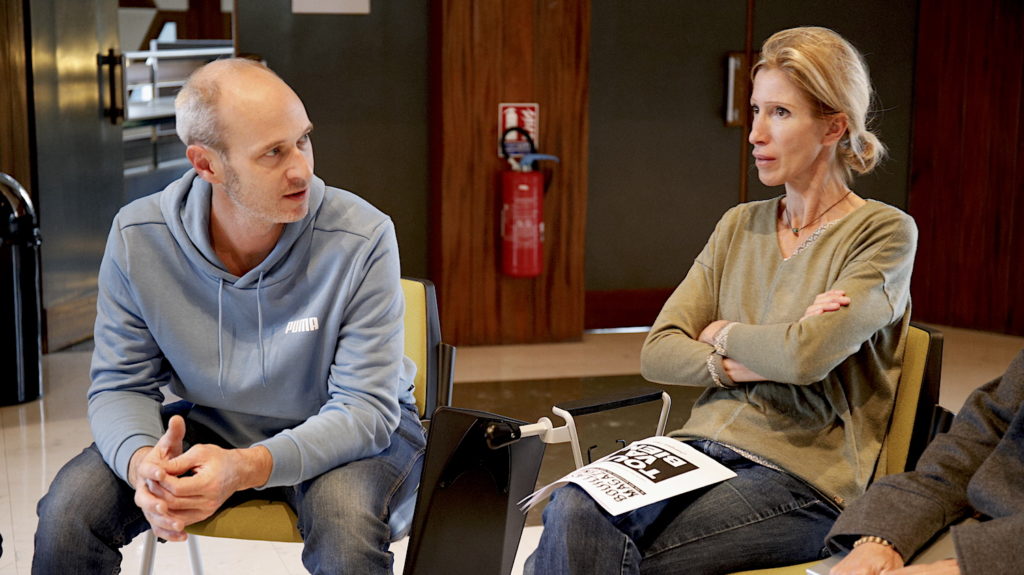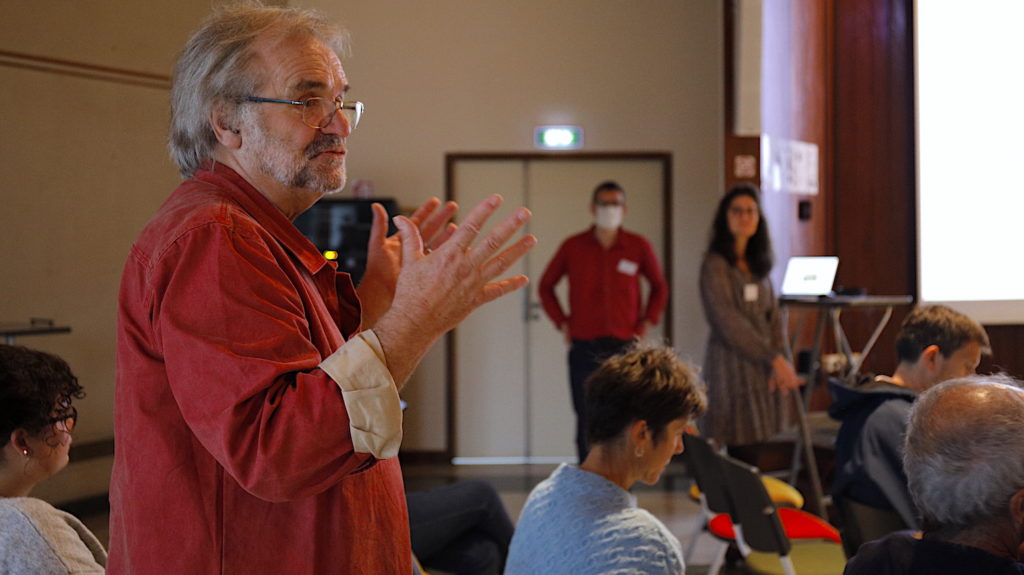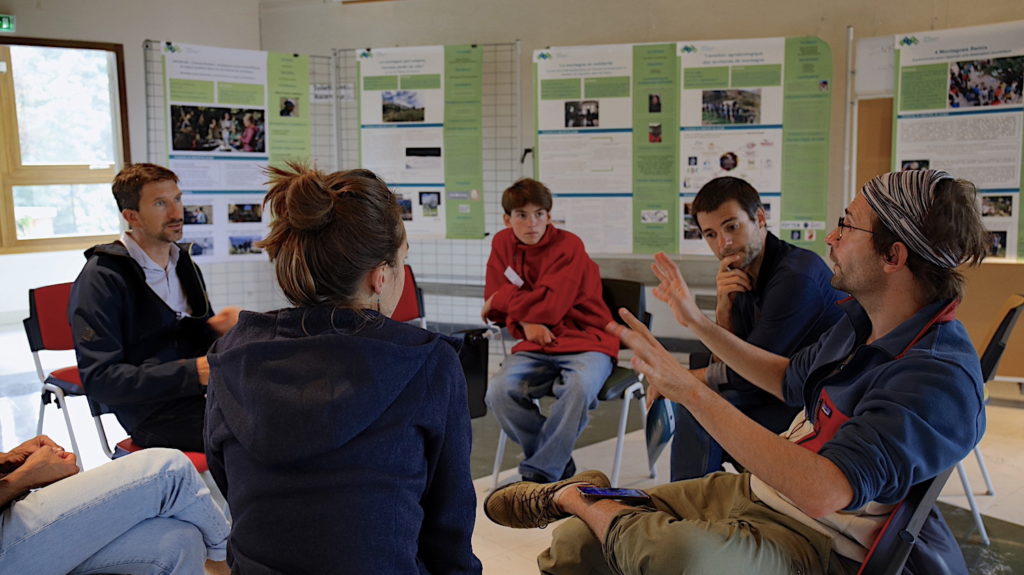Labex life
Imagining tomorrow’s mountains together
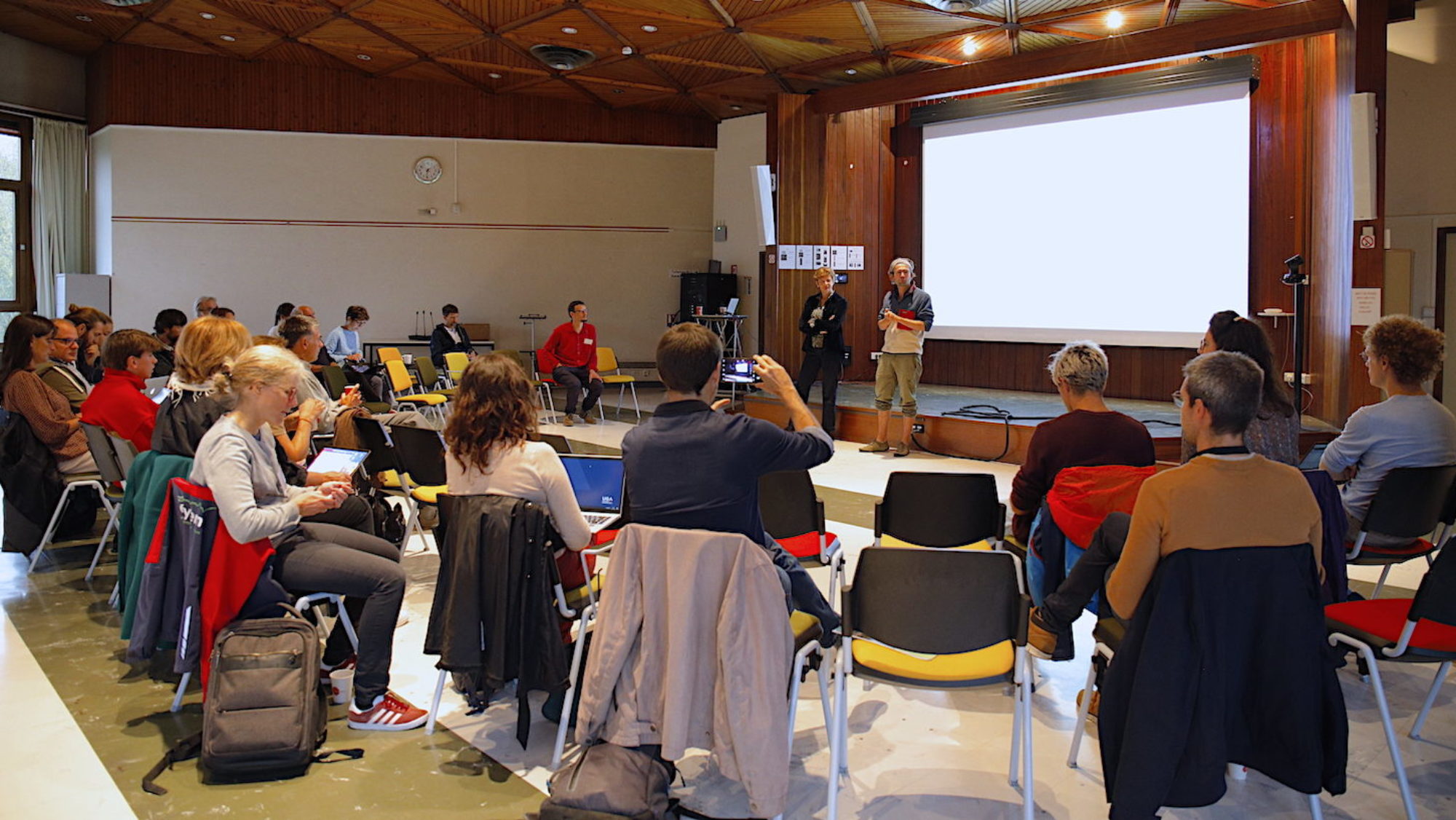 © Leïla Shahshahani
© Leïla Shahshahani
On Friday October 21, some forty researchers and players involved in Labex ITTEM’s work gathered at Inrae’s premises on the Grenoble campus for a day rich in exchanges, as part of the2nd Partners’ Forum.
The morning was devoted to the presentation of different working methods for forging links between researchers and socio-economic partners, based on two central questions: How can research be used to address territorial issues? How can research results be communicated to a wider public?
A replicable approach
Based on the experience of the “In situ” research residency, organized in November 2021 at Gresse-en-Vercors under the aegis of the Collectif Perce-Neige and Labex ITTEM, the crossed testimonies of Énora Bruley – a post-doctoral fellow – and Jean-Marc Bellot – the resort’s mayor – provided an insight into the respective viewpoints of researchers and local players.
This shared restitution aroused the interest of participants, both in the practical aspects of implementing the approach (Who finances? Who participates?) and in the opportunities it opens up. Laurent Reynaud, Director of Domaines skiables de France, felt that this type of initiative, aimed at shedding light on the various challenges facing a territory and enabling a community to collectively question its identity, should be encouraged.
The “In Situ” format has become a hallmark of the Labex in terms of the socio-economic development of human and social science research on mountains. Raphaël Lachello, doctoral student and member of the Collectif perce-Neige, stressed the importance of co-constructing questions with stakeholders (elected representatives, local residents, etc.) that are also relevant from the researcher’s point of view. Jean-Marc Bellot concurred, saying that the acceptance of the approach by local residents was largely due to the fact that it was proposed by young academics and scientists, rather than a consultancy firm.
Other examples of collaboration between researchers and local players were presented in a three-minute pitch format, covering a range of topics: helping people to understand local issues (tool-frise, voluntary geographic information); links with artistic practices (researcher-artist residency, creative remix); and scientific popularization (twitch channel, Ecotraversées, anthropological ski raid)…
Local educational projects
The afternoon was devoted to the presentation of some of the eleven training projects supported by Labex ITTEM, aimed at undergraduate and postgraduate students on a variety of subjects: mobility, tourism, migration and refugees, agroecology…
The organizers of these workshops have demonstrated the importance of building partnerships with local players in the development of educational projects. Here again, the benefits are twofold: for the region hosting the students, who benefit from an outsider’s view of the issues that affect it; and for the students and their teachers, who apply what they have learned to real-life issues in the field.
Discussions with the partners present on these schemes enabled them to share their expectations and consider other possible deployments.
” Imagining tomorrow’s mountains collectively requires going beyond disciplinary and academic boundaries to build new types of collaboration “, explains Jean-Baptiste Grison, Labex ITTEM project manager and organizer of the Partners’ Forum. The 2nd edition of this event will have made its contribution.
Photos : Leïla Shahshahani

